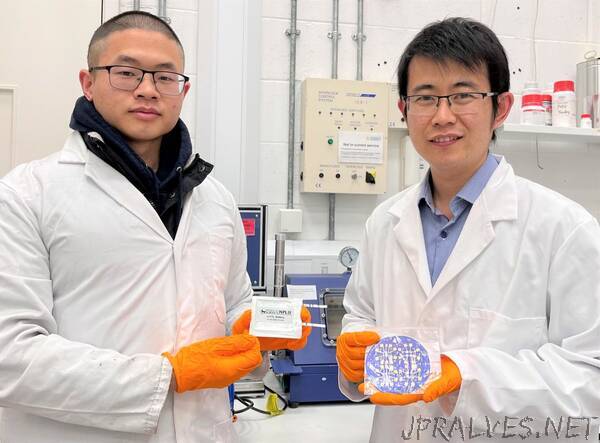
“Lithium-based batteries capable of capturing carbon dioxide to help store energy are being designed and manufactured by the University of Surrey, thanks to support from the Faraday Institute.
These lithium-CO2 batteries have a theoretical energy density of 1800 Wh/kg, which is substantially higher than that of lithium-ion battery systems on the market today – meaning lighter batteries or more capacity for the same weight, with potential benefits across industrial applications.
Dr Yunlong Zhao, project lead from the University of Surrey, said:
“We are incredibly excited about lithium-CO2 battery technology, which has the potential to revolutionise the energy storage industry and move us ever closer to reaching net-zero emissions. With the help of our bespoke fabrication platform, we can design and manufacture practical lithium–CO2 pouch cells that eliminate the problems these batteries have faced in the past.”
Current designs of lithium-CO2 batteries suffer from major inefficiencies caused by electrolyte leakage and evaporation. The team from Surrey is proposing to design and produce lithium-CO2 batteries with valve-regulated sealed ‘pouch’ cells to solve these problems.
This work to improve batteries is part of Surrey’s wider research to tackle the challenge of sustainable energy generation. The huge variety of the University’s work in this field includes research into supercapacitors, next-generation solar panels, wearable nanogenerators, biofuels, nuclear fusion and more.
Dr Yunlong Zhao continues:
“If we are serious about living sustainably and nursing our planet back to health, there needs to be a fundamental shift in how the general public, not just the science community, views energy storage. While our lithium-CO2 battery technology has the immediate and obvious potential to be used in next-generation electric vehicles, we also believe that this technology could be used in future intermittent power generation systems – for example, to store wind energy.
“We all have to think bigger if we are to halt the negative effects of climate change.”
The project is a collaboration between the University of Surrey, Johnson Matthey and the National Physical Laboratory (NPL).
The Faraday Institution has funded the Surrey project as part of its Battery Study and Seed Research Projects.
Professor Pam Thomas, CEO of the Faraday Institute, which is funding the project, said:
“These novel projects are in areas of application-inspired research that continue to strengthen the UK’s position in electrochemical energy storage, and ultimately contribute to making the UK’s industry more competitive.”“
